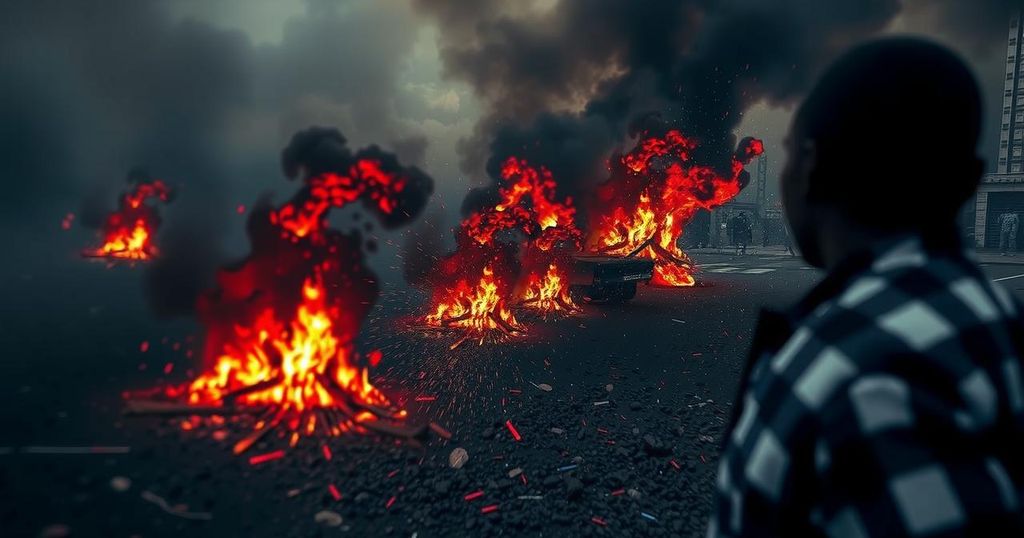Political Tensions Escalate in Mozambique Following Activist Assassinations
Tensions are rising in Mozambique after the unlawful killings of opposition figures Elvino Dias and Paulo Guambe, coinciding with allegations of electoral fraud in the recent presidential election. Dias was preparing to contest the election results on behalf of Venâncio Mondlane, the leading opposition candidate, who claims electoral malfeasance by the ruling Frelimo party.
Tensions have escalated in Mozambique following the tragic assassinations of key supporters of Venâncio Mondlane, the leading opposition presidential candidate. On late Friday night, in the capital of Maputo, Elvino Dias, a lawyer and official of Mondlane’s party, was murdered in an ambush that also claimed the life of senior party member Paulo Guambe. This violence has heightened the already fraught atmosphere stemming from allegations of electoral fraud that overshadowed the recent presidential election held on October 9th. The election results, which have not yet been finalized, currently show Daniel Chapo of the ruling Frelimo party with a significant lead. However, independent observers reported numerous irregularities during the voting process. In light of his unexpected surge in popularity, Mondlane accused the ruling party of electoral theft and called for protests. This outcry for justice was especially poignant as Dias was preparing to challenge the election results in court on behalf of Mondlane’s campaign. The current situation remains precarious as calls for a demonstration are set against the backdrop of increasing political violence.
Mozambique has a history of political tension and instability, particularly in the wake of its civil war and challenges surrounding governance. The recent presidential election has drawn considerable attention due to allegations of widespread fraud, which many believe skewed the results in favor of the long-dominant Frelimo party. The significance of this election is underscored by President Filipe Nyusi’s impending departure from office after completing two terms. The assassination of prominent opposition figures, such as Elvino Dias and Paulo Guambe, reflects a deeply troubling trend of violence against political dissenters in the country.
In conclusion, the assassinations of key political activists in Mozambique serve as a dire warning about the state of political affairs in the nation. With accusations of electoral fraud lingering and tensions escalating among the populace, the future of Mozambique’s political landscape remains uncertain. As calls for protest and resistance mount, it is crucial for the international community to monitor the situation closely and advocate for peace and democracy in Mozambique.
Original Source: www.nytimes.com




Post Comment